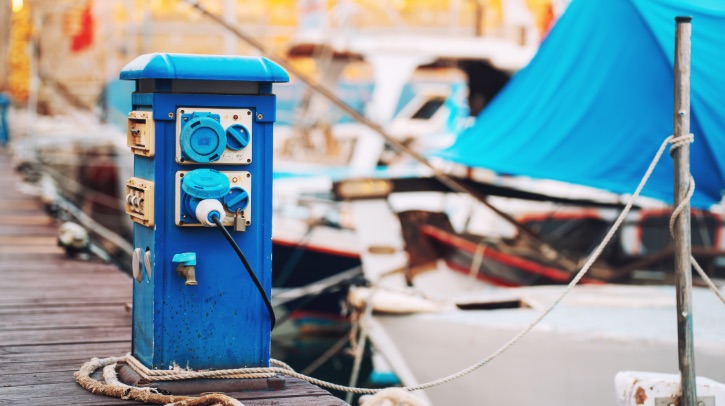UK maritime minister Mike Kane has announced that the UK is to develop new “green shipping routes” only accessible to zero-emission vessels.
Clean maritime routes
The new projects to receive funds to develop these future routes include the Port of Tyne to the Port of IJmuiden (Netherlands) and the Port of Holyhead to the Port of Dublin. The Department for Transport (DfT) is also funding the development of green shipping routes from the UK to Norway and Denmark – the organizations that will lead these are yet to be announced.
This latest round of funding comes from the fifth round of the Clean Maritime Demonstration Competition (CMDC5), which focuses on driving innovative solutions and new technologies to decarbonize the industry and grow the economy.
UK maritime minister Kane said, “Shipping is a big contributor to global greenhouse gas emissions, so these new green corridors could be a real game changer for industry. This is exactly the direction we need to be going in to achieve our mission of becoming a clean energy superpower. These new corridors could turbocharge the use of sustainable fuels, secure the green jobs of the future and advance environmentally friendly travel to major European capitals like Amsterdam and Dublin.”
Matt Beeton, CEO of the Port of Tyne, added, “Today’s funding announcement will support the development of port infrastructure for electrification and the refueling of state-of-the-art clean powered vessels. This important green infrastructure will ensure that the Port of Tyne and the Port of IJmuiden are supporting decarbonized routes between the Northeast of England and Europe with the aim of saving up to 850,000 metric tons of CO2 annually. Bolstered by the Maritime Innovation Hub, the Port of Tyne continues to drive sustainable innovation and act as a focal point for a growing European decarbonized distribution network for green trade and passenger journeys. The River Tyne fueled the industrial revolution and now it’s at the forefront of greening international logistics.”
Ian Davies, head of UK Port Authorities at Stena Line, commented, “We’re delighted to have been awarded this funding to explore establishing the first ‘green corridor’ between Wales and Ireland. Stena Line aims to be a leader in sustainability in the industry and we look forward to collaborating with our partners to assess the infrastructure needs in Holyhead Port to support a fossil-free shipping corridor to Dublin Port, working together with both ferry operators. We’re currently working to futureproof our fleet across Europe by investing in new ships and have plans to convert existing ships to be able to operate on alternative fuel. This feasibility study will help us determine the best way forward for our two vessels on this key trading route to support our ambitious sustainability goals.”
Additional funding
Visiting the Port of Tyne, the maritime minister also announced separate funding to help make sea travel cleaner and smarter. Up to £8m (US$10m) of match funding will be given to 30 projects across the UK to accelerate plans to develop smart technologies, such as autonomous systems, AI, robotics and sensors. This funding comes from the £206m (US$268m) UK Shore program.
Mike Biddle, executive director for net zero at Innovate UK, said, “Like so many industries, the maritime sector is under immense pressure to decarbonize its transport and process methods. Innovate UK is proud to be a key delivery partner for DfT’s UK Shore program, which provides a unique platform for innovators and collaborators to demonstrate real-world solutions to some of the sector’s most pressing challenges. With this year’s round of competitions delivering a host of exciting prospective technologies, from smart shipping drones to methanol-fuelled vessels, UK Shore looks to accelerate the adoption of these sustainable solutions and help the UK drive toward its net-zero targets.”
In related news, the Maritime and Coastguard Agency (MCA) recently published draft criteria as the basis for new courses for maritime training providers, including minimum learning requirements for safety and technical skills, and a requirement for each course to be submitted to the MCA for approval before being opened to trainees. Click here to read the full story.



